M K Bhadrakumar
The downhill slide in the India-Pakistan relationship will suit one party eminently -- the Pakistani military, says M K Bhadrakumar
The downhill slide in the India-Pakistan relationship will suit one party eminently -- the Pakistani military. That also brings up another question: How far is the Pakistani military queering the pitch for the recent deepening chill in the bilateral ties?
The capacity of the Pakistani military to stage an old-fashioned army coup has distinctly waned. This must be counted as one of the most remarkable achievements of the civilian government led by the Pakistan People's Party.
The Pakistan Peoples Party could succeed in this direction because the principal opposition Pakistan Muslim League-Nawaz showed great statesmanship and far-sightedness in taking a firm and consistent stance that no matter its differences with the PPP government, it will never ever play the role of the 'King's Party' -- as cats-paw for the generals in Rawalpindi.
In turn, the Pakistani military has lost the trump card to blackmail the PPP government with a PML-N proxy. It tried other options such as by propping up Imran Khan and in desperation it even brought in Maulana Qadri, but the ploy didn't work, either.
...
The Pak army's image is no longer shiny
Image: Former Pakistan President Pervez MusharrafWhy it didn't work is because the army's popular image is no longer as shiny as it used to be. (This must be counted, ironically, as the legacy of Pervez Musharraf's inning as the great helmsman in Islamabad for a decade.)
Put differently, the Pakistani people may have a low opinion about the calibre of their politicians but that is not per se turning into added popularity for the Pakistani military.
Therefore, the spectre that is haunting the Pakistani army is that the next elected government after the election in May -- be it under the leadership of the PPP or the PML-N -- will push for civilian supremacy in a manner similar to what happened in Turkey under Prime Minister Recep Erdogan.
An invigorated elected government to come to power after the May election can be expected to accelerate the process that President Asif Zardari started through the past five-year period to incrementally take away the army's traditional prerogatives to set the compass on the crucial foreign and security policies.
...
Tensions with India come handy for the Pak military
Image: Pakistan Army chief General Ashfaq KayaniPhotographs: Mian Khursheed/Reuters
It all, therefore, boils down to the high probability that the army may attempt a 'post-modern coup' to preempt the elections by creating an alibi. Of course, woven into all this is the intriguing question of the future of Pakistani army Chief Ashfaq Kayani, whose extended term is ending later this year.
Generals such as Kayani won't simply walk into the sunset. To add to it, the mercurial Musharraf is returning to the political arena in Pakistan.
Thus, any whichever way one looks at it, tensions with India come handy for the Pakistani military.
Unfortunately, a series of moves (and counter-moves) in the most recent months on both sides of the India-Pakistan divide have contributed -- unwittingly or deliberately -- to the rapid deterioration of the climate of relations.
Ajmal Kasab's execution, the beheading of the Indian soldiers on the LOC, execution of Afzal Guru, the Hyderabad blasts, cold shouldering of the visiting Pakistani prime minister, attack on the BSF camp in Srinagar, passing of strongly-worded resolutions by the two parliaments on successive days -- no doubt, a vicious cycle is developing.
...
Do not rule out some spectacular strikes in India
Image: Soldiers carry the funeral casket of their colleague Najeebullah, who was killed in the 2011 NATO cross-border attackPhotographs: Reuters
What complicates matters is that politicians on both sides may see (transient) advantages in grandstanding. The extremists on both sides help each other, because they thrive on vitriolic polemics. Equally, both countries are heading toward crucial parliamentary elections and both have relatively 'weak' governments, which are fighting with their back against the wall for a renewed mandate.
Where does this all lead to? Who stands to gain? Certainly, the advantage goes to the Pakistani military, because there is a one-year period ahead for the elections to be held in India and that is ample time to rachet up tensions to a frenzy.
Do not rule out some spectacular strikes at India's national security interests, which will be highly provocative for the Indian public opinion in an election year.
What also needs to be factored in is that through 2013 and 2014, long convoys belonging to the American forces and NATO alliance will be passing through the Pakistani transit routes on their way out of Afghanistan.
Suffice to say, India-Pakistan tensions have already become a 'bread-and-butter' issue for the United States and its key allies -- our aversion to 'third party role' notwithstanding.
Even in the face of the most dastardly provocations such as the 26/11 fidayeen attacks on Mumbai, Delhi will be called upon to exercise 'restraint'. Can a 'weak' government in New Delhi in the thick of the election campaign afford to be seen as 'weak'?
No, Sir.
...
India-Pakistan tensions threaten regional security
Image: Colin Powell, former US secretary of statePhotographs: Reuters
There is more to it -- much more to it, in fact -- if the cascading India-Pakistan tensions that threaten regional security and stability happen to be emanating out of the valley in J&K. That is where the attack on the BSF camp in Srinagar and the Pakistani parliament's resolution on Afzal Guru assume particular significance.
It has been a consistent 'grievance' of the Pakistani military leadership that Washington has a 'tilt' toward the Manmohan Singh government in India, and, more importantly, that Pakistan has gained nothing out of the huge sacrifices it made in the Afghan war as the US's ally.
Do not forget for a moment that it is a fact of recorded current history that when the then US secretary of state Colin Powell visited Islamabad in the crucial month of October 2001 even as the George W Bush administration was preparing for the invasion of Afghanistan, Musharraf fell in line with the agenda of the ouster of the Taliban regime in Kabul on the great expectation that there will be a reciprocal US move to settle the India-Pakistan dispute over Kashmir.
Thus, as far as the Pakistani military is concerned, it is now payback time. And once the US and NATO convoys cross the Khyber Pass and start rolling into the Punjab plains, the US indeed has a deep obligation to its western allies (and to its self-interests) to ensure that maximum cooperation of forthcoming from the Pakistani military.
...
Our interest lies in dousing the fire
Image: A soldier stands his guard, observing the LoCPhotographs: Rajesh Karkera/Rediff.com
I have profound respect for our honorable parliamentarians and their discerning power. But I am not sure whether what took place to today -- passing of the resolutions on Kashmir affirming that Pakistan-Occupied Kashmir is an integral part of India, and so on -- was a judicious thing to happen.
The fact of the matter is that Pakistani Parliament has passed highly provocative resolutions in the past also on many occasions. The chronicle of the 1990s is littered with such resolutions. But we have been sagacious enough to ignore them for what they are -- or, at best direct the official spokesman to give a tight verbal slap if we felt someone needed to be put in his place.
The policy paid dividends.
Polemics resonate only when they are joined. And in this case, they resound in the Valley in J&K -- which is exactly Pakistan's intention. They have rightly assessed that passions are running high in J&K over Afzal Guru. They are pouring oil into the fire. Our interest, on the other hand, lies in dousing the fire.
Polemics do not settle the Kashmir problem or help find solutions to India-Pakistan differences. This should have been a good time to work via the 'back channel'. By the way, do we have one?
M K Bhabrakumar is a former ambassador

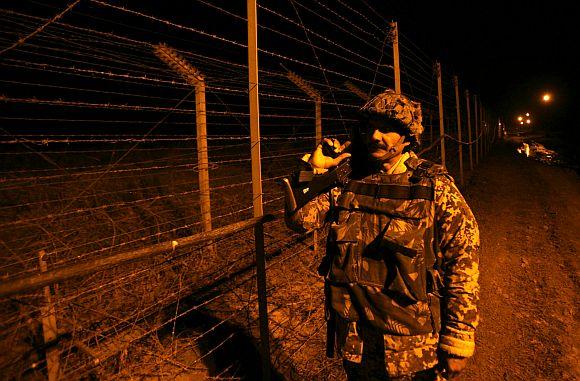
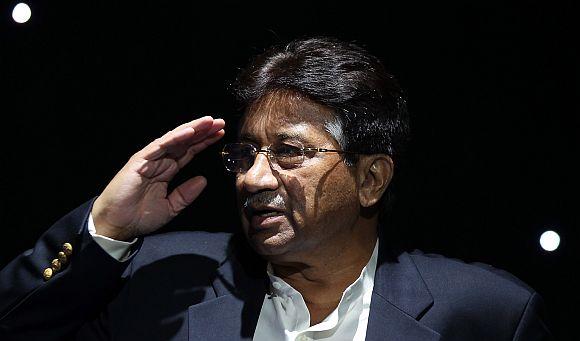
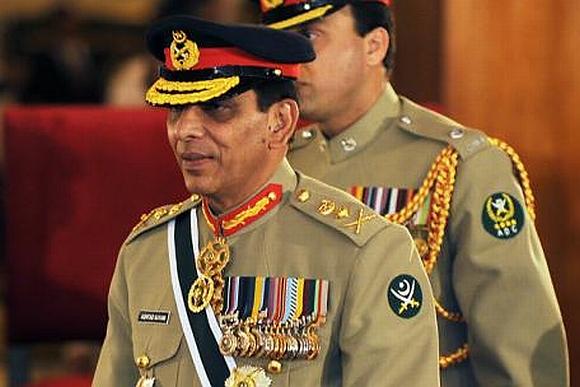
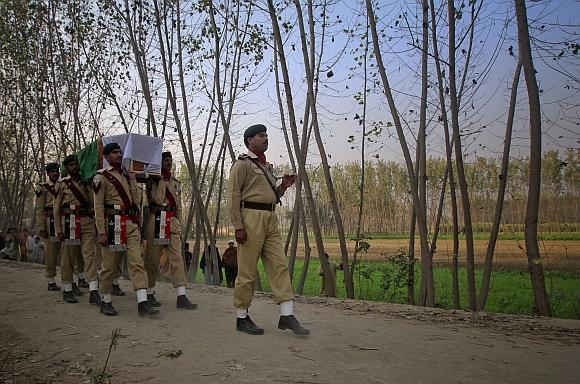
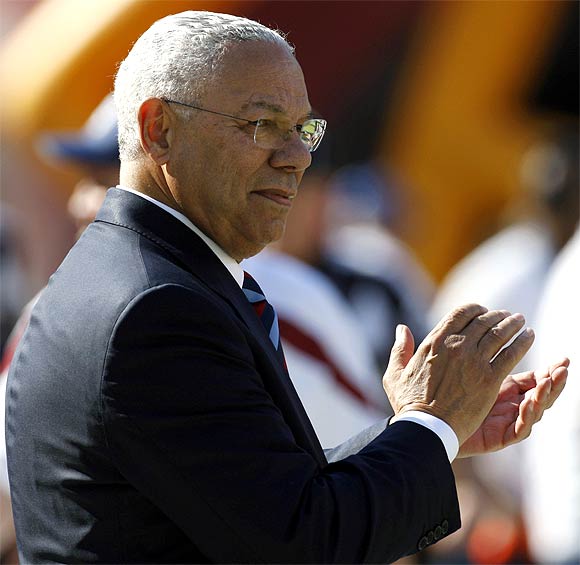
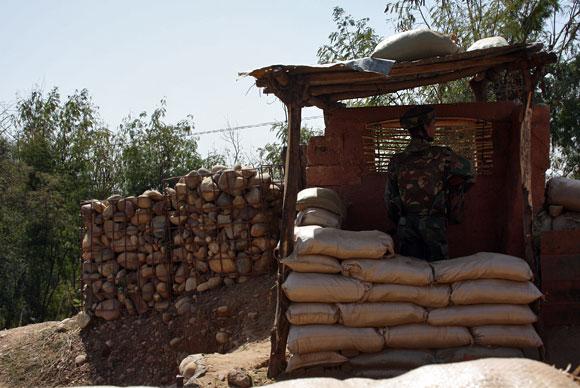
article